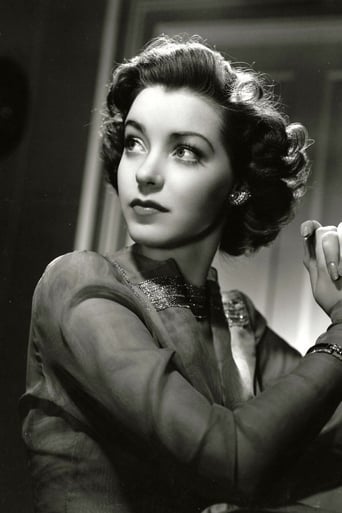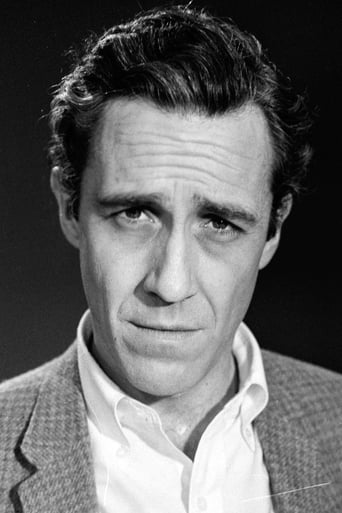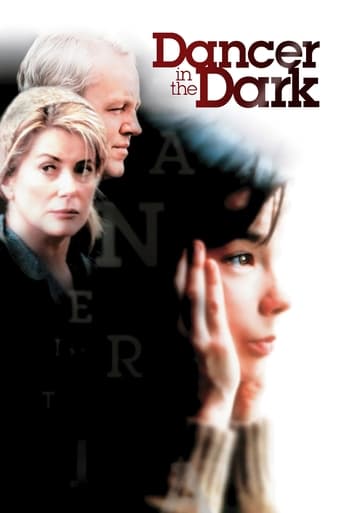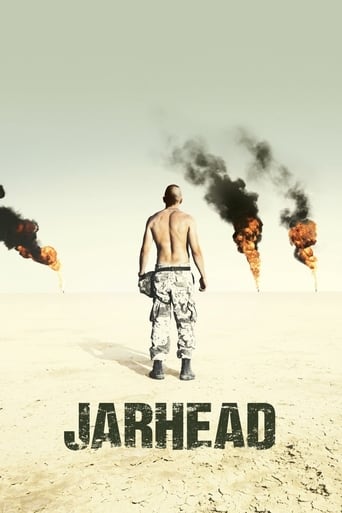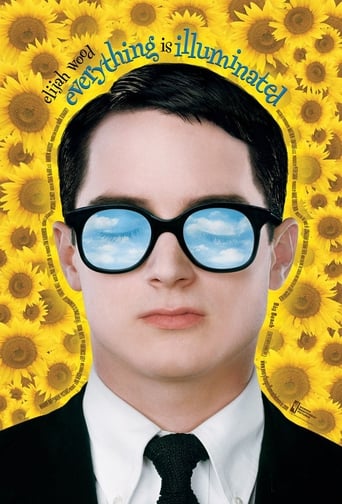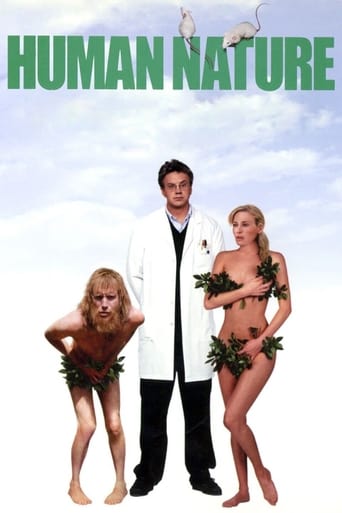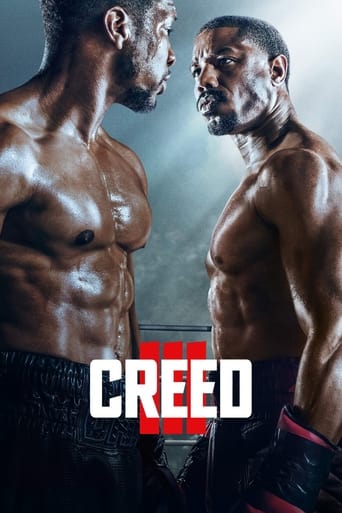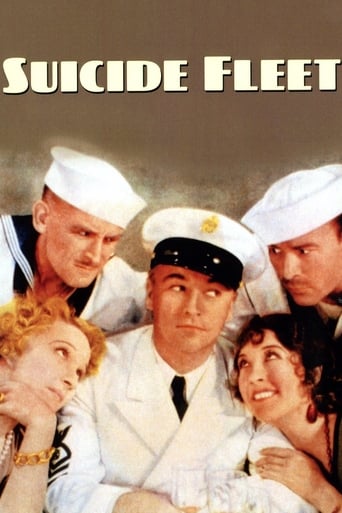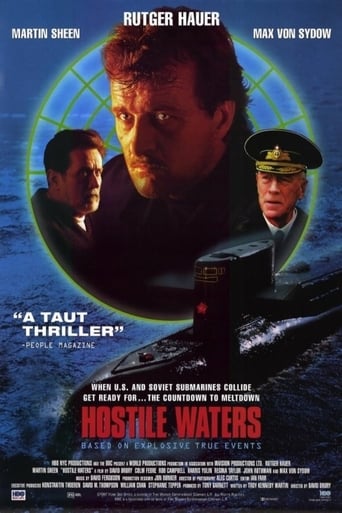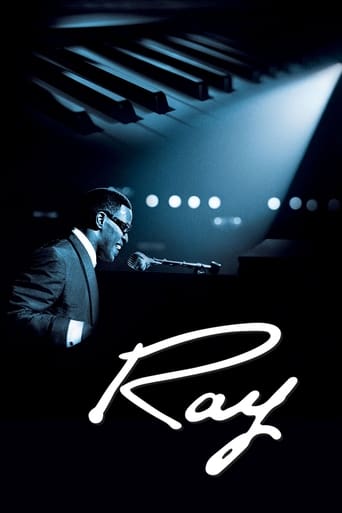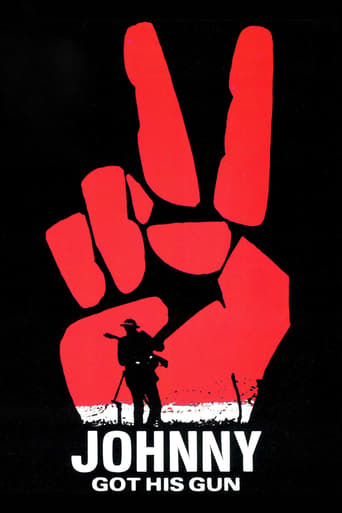
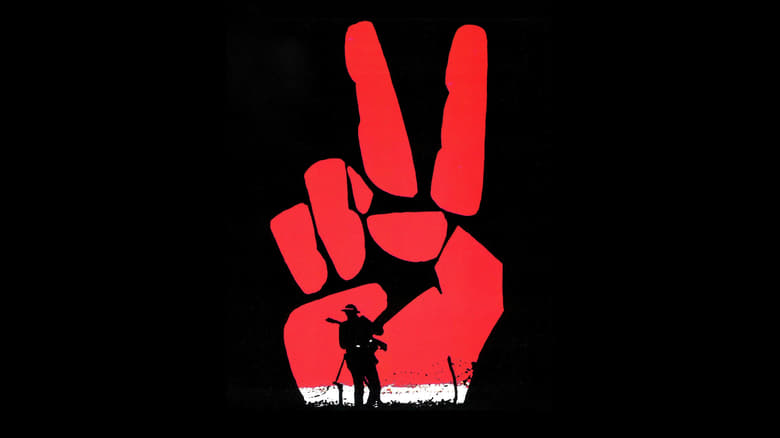
Johnny Got His Gun (1971)
A young American soldier, rendered in pseudocoma from an artillery shell from WWI, recalls his life leading up to that point.
Watch Trailer
Cast


Similar titles
Reviews
Few films have left me so moved and shocked. I saw this film in passing, perhaps twice when I was in my teens. Half-hearted attempts to give it a name failed until I clicked through an IMDb list. It is gripping, moving and wonderfully told. You can never again lie awake in bed at night and not imagine how you would cope with such a nightmare. It poses so many questions about what it means to be alive, violent conflict, war, nursing and treatment and the right to live or die - even the 21st century question of what defines 'to be alive' and ways today to communicate through brain wave activity when there is nothing else to monitor. This should be seen by anyone with an interest in the First World War alongside documentaries, action thrillers, romances and comedy about conflict on this scale. As pertinent to those interested in the Second World War, indeed any conflict where a combatant is left horrendously broken and then kept in the quasi-statis of the undead.
In 1972 I was 16 and living on my own in NYC. The era was tumultuous and I was naive enough to believe that tumult was the norm. That time was tailor made for the vision of Trumbo. In a different but appropriate way, today is too. I had read JGHG in my HS freshman year and seeing the title on a marquee in Soho I bought a ticket.I won't remark on storyline or the skills brought to bear by the principals or dwell on how the ethos, pathos and logos of Trumbo's piece are resonant now as then.I will relay this information. I left that theater shattered. I knew the story, the book was faithfully translated to the screen albeit abbreviated. Nonetheless the delivery of JGHG on screen affected me to a degree that no other single piece did before or has since. I am a middle aged man now with grandchildren, and the uncle of young men who served in foreign wars. I have yet to reconcile my disdain for people who take advantage of their positions to send our children to their deaths with my understanding that some things are worth our blood and treasure. We each carry our own unique moral baggage to our concepts of war. My baggage was made manifest at an afternoon matinée one rainy day in 1972, almost 40 years ago but cemented in my psyche. This is my testimony to the power of Dalton Trumbo's work.In case the magnitude of its impact has not been strongly enough emphasized here, I should note that I have had a copy of JGHG in my film library for some time but have not watched it. I just can't bring myself to go through that again as there is no cathartic effect or anything approaching relief to be had.
Vietnam determinedly enlightens Dalton Trumbo's repossession of old ground in the era of MASH and Catch-22. Trumbo's Johnny is, yes indeed, a guy named Joe, once a baker supporting his family, smitten with gentle Teresa Wright or Greer Garson-style girl, who joins the army because, why, "it's the sort of thing a fella oughta do, when his country is in trouble." All these familial figures are in essence Norman Rockwell collectibles. What a contrast when, in the trenches, he's sent on a round to hide a carcass that affronts a colonel's sense of smell. A shell lands near him. This is his last memory before he, regrettably, awoke, in a hospital.The army is satisfied he has no cognizant mind. They resolve to keep him breathing only to study him. But he's cognizant all right, and little by little he becomes so of the horror of his wounds. He's literally captive within his mind, for a desperate eternity to anyone with no available concept of time, until he discovers a way of communicating with a compassionate nurse. Trumbo avails himself of a brilliant fast-cutting sequence, in a sense the sort one frequently sees in edgy late '60s and early '70s movies, but a particularly incisive and acute portrayal of mental disorientation, Bottoms struggling to organize his new life's routine without the aid of any physical outlet, no anchor for his thoughts, struggling to file them with constant bewildering disturbances and loss of bearings. Even telling day from night is a mystery for him to solve.The upsetting premise benefits from Paths of Glory, La Jetée and the story of Helen Keller, but in no way does he tell his story in anything but the most inimitable way. Never before or since this film have we seen anything much like it. Because of Trumbo's determination to render the most exacting possible depiction of Bottoms' unique perception, there is even a transitional effect unique to this film, a fade to yellow when he feels the sun for the first time since his injuries. This truly unique work also unearths probably the most inventive use of voice-over I might've ever heard: He describes people we see as vibrations. When two nurses enter, he claims that now there are two vibrations. In a clever smidgen of much-needed levity, one nurse is fat, and he supposes it's a man.A story that authentically imparts the loneliest possible consciousness, one where the subject can't even be sure whether or not he's alive, Trumbo draws on flashbacks and flights of a deserted, despairing imagination to make Joe alive for us, as he subsists in a living death. Evincing what could perhaps be argued as a level of bitterness in respect to the filming of Trumbo's human war tales in the past, or simply a yearning for the naivete of the old days, some memories and fantasies recreate the 1940s melodrama use of music, soft lens, close-ups and prosy dialogue. Then we find some of the brutal realities of real-life scenes are muted by some of that classic technique after awhile as well. The most pleasant flashback is the first, when Joe and his girl kiss in her living room and are cut short by her father, who sends them to her room, where there's a love scene of such softness and splendor that its resonance ring through the whole film. Representing Trumbo's own awe at his character is Donald Sutherland's Jesus, who counsels Joe in a celestial milieu more akin to how Trumbo might've truly wanted to portray the same fantasy in A Guy Named Joe over thirty years before.Christ actually doesn't have much to put forward. He has no solutions because there are none. Indeed, the film closes with no political answers and without, as a matter of fact, even a political outlook. It purely presents a set of circumstances. Here was a loyal young American who went off and was hideously injured for no grand cause, and whose alert mind lives on as a staggering condemnation of powers that be who sent all the young men away to do this to one another.
This wrenching tale about a basket case in which a young American soldier named Johnny -Timothy Bottoms - is hit by a bomb on the last days of the WWI . The story takes place in the mind of a quadruple amputee who has also lost his eyes, ears, nose, and mouth. As the deaf and dumb Joe is limbless , faceless and confined to a semi-existence and he attempts to communicate with the staff -Edward Franz- and caretakers . Regaining consciousness, 20 and some year-old Joe Bonham slowly learns that while his brain is healthy and able to reason, the rest of his body is irreparably shattered, leaving him forever tied within the confines of his own imagination. Regarded as a vegetable and stuck in a light-less hospital utility room , he fantasizes and dreams about life before and after the artillery shell . He struggles valiantly to find some way to communicate with the outside world . Tapping his head on the pillow in Morse code he breaks through and pleads with his nurse -Diane Varsi- to be put on display as a living example of the cost of war.The black-listed Trumbo adapted his own novel, seemingly unfilmable , incredibly based on real events , approximately thirty years after he wrote it and shot at the climax of the Vietnam era . The picture is often sentimental, sometimes thought-provoking as well as terrifying . It is developed through a sustained interior monologue on a series of flashbacks to Johnny's infancy , his first and only night with his love interest -performed by Kathy Fields- , before leaving for the front , his employment in the local bakery and his relationship to his father- Jason Robards- and Christ well played by Donad Sutherland , including some breathtaking images in a train. The flick terminates captioning the following : ¨ War dead since 1914 : over 80.000.000 , missing or mutilated : over 150.000.000¨ . ¨ Dulce et decorum est pro Patria Mori ¨. The movie deservedly won the Grand Jury Prize at Cannes 71 . This morbid anti-war and pro-euthanasia diatribe is very good film though a little bit boring , talky and depressing. It's recently remade (2008) in a special version by Rowan Joseph with Ben MacKenzie as Johnny .



